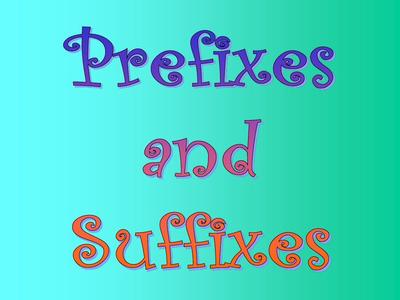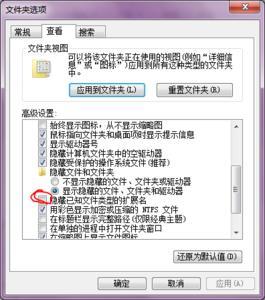Suffix 后缀
In linguistics, a suffix(also sometimes called a postfix or ending) is an affix which isplaced after the stem of a word. Common examples are case endings,which indicate the grammatical case of nouns or adjectives, andverb endings, which form the conjugation of verbs. Particularly inthe study of Semitic languages, a suffix is called an afformative,as they can alter the form of the words to which they are fixed. InIndo-European studies, a distinction is made between suffixes andendings (see Proto-Indo-European root). A word-final segment thatis somewhere between a free morpheme and a bound morpheme is knownas a suffixoid or a semi-suffix (e.g., English -like or German-freundlich 'friendly').
Suffixes can carrygrammatical information (inflectional suffixes) or lexicalinformation (derivational suffixes). An inflectional suffix issometimes called a desinence.
Some examples in Europeanlanguages:
Girls, where the suffix -smarks the plural.
He makes, where suffix -smarks the third person singular present tense.
It closed, where the suffix-ed marks the past tense.
Many syntheticlanguages—Czech, German, Finnish, Latin, Hungarian, Russian,Turkish, etc.—use a large number of endings.
Suffixes used in Englishfrequently have Greek, French or Latin origins.
Inflectionalsuffixes
Inflection changesgrammatical properties of a word within its syntactic category. Inthe example:
I was hoping the clothwouldn't fade, but it has faded quite a bit.
the suffix -e[]d inflects theroot-word fade to indicate past tense.
Some inflectional suffixesin present day English:
-s thirdperson singular present
-ed pasttense

-ingprogressive/continuous
-en pastparticiple
-splural
-enplural (irregular)
-ercomparative
-estsuperlative
-n'tnegative
Derivationalsuffixes
In theexample:
"The weather forecaster saidit would be clear today, but I can't see clearly atall"
The suffix -ly modifies theroot-word clear from an adjective into an adverb. Derivation canalso form a semantically distinct word within the same syntacticcategory.
In thisexample:
"The weather forecaster saidit would be a clear day today, but I think it's more likeclearish!"
the suffix -ish modifies theroot-word clear, changing its meaning to "clear, but not veryclear".
Some derivational suffixesin present day English:
-ian
-ize/-ise
-fy
-ly
-ful
-able/-ible
-hood
-ness
-less
-ism
-ment
-ist
-al
-ish
 爱华网
爱华网


